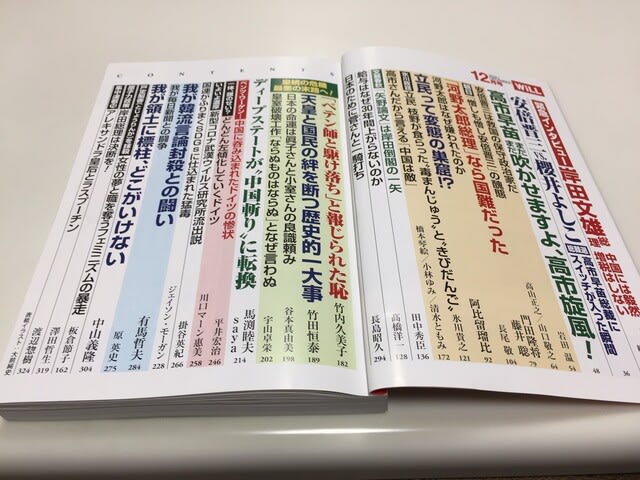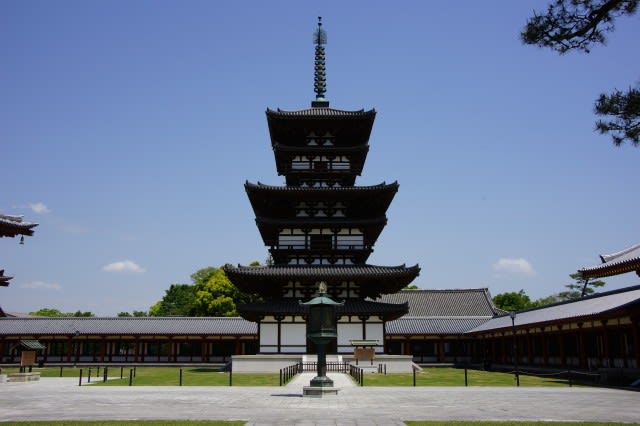- Factories have been forced to shut down across the board.
- Power and water outages have been frequent everywhere.
- Traffic lights have gone out, causing massive traffic jams.
- The daily lives of the people have been thrown into chaos.

ファシストと全体主義は人間のエネルギーをより効果的に発揮させる方法であることを証明したことになった、と題して、2021年04月02日に、 文明、政治、経済の項として発信した章が、既述の信じがたい犯罪者の執拗な検索妨害行為に遭って、全く検索されていなかった。
この犯罪者は本欄に対するストーカーそのものである。
だいぶ以前に、日本の法律が、この様なインターネット上の犯罪に対して全く不備だった時、知人の京都大学卒の弁護士に相談した時の事である。
当時の結論は、「対応する法律が整備されていないから、どうしようもない」、だった。
この時、弁護士は、「それにしても、これほど執拗に、こんな事をする理由が分からない」、と言った。
私もオウム返しに、「それは私にも分からない」、と答えた。
だが、今なら、こう返答する。
韓国が日本に対するストーカー国家である事と同じだろう。
中国の日本に対する態様とも一緒だろう。
朝日新聞が日本と自民党、特に稀代の政治家である安倍晋三氏に対するストーカー新聞である態様と一緒だろう。
立憲民主党、共産党、社民党の福島瑞穂とその一派達が日本に対するストーカーであるのと全く一緒の態様だろう。
底知れぬ悪とまことしやかな嘘が本質である国民と、それらの国に追従する「役に立つ馬鹿」の態様と一緒だろう。
彼らが、もはや治しようがないと同様に、この犯罪者も治しようがない。
日本国として刑法を新たに制定し厳罰を加え刑務所に収監する以外に治しようはない。
今日、産経新聞の一面に、やっと、国が、このようなネット上での「侮辱罪厳罰化を答申したとの記事が掲載された。
2011年6月1日から始まった、この犯罪者の行為は、筆舌に尽くし難い程に酷かった。
当時、相談した、元検事の弁護士は、PC大嫌い、ネットなんか見るのも嫌という人物だったが、その行状を一目見るなり、「これは酷い」と言い、即座に5つほどの該当する罪名を挙げた。
彼に文面を書いてもらい、一人で警察に赴き刑事告訴した経緯は既述の通り。
約3年もかかったが、警察は検察まで上げてくれた。
その後の経緯も既述の通り。
見出し以外の文中強調は私。
産経新聞文化部桑原聡は、モンテーニュとの対話、「随想録」を読みながら、と題して論文を連載している。今日は98回目である。
ベルリン五輪前夜のごとし
終了後から 悲劇は本格化
1933年に権力を掌握したヒトラーは当初、すでに開催が決定していた36年のベルリン五輪には乗り気ではなかったという。
いわく「五輪はユダヤとフリーメイソンによる発明」。
ところが側近のアドバイスを受け、五輪をナチス・ドイツのプロパガンダとして利用することを決意する。
とはいうものの、「ゲルマン民族の優越性」という妄想にとらわれたヒトラーが推し進める領土拡張、人種差別、ユダヤ人迫害政策を理由に、ユダヤ人が多く暮らすアメリカやイギリスなどで「ベルリン五輪はボイコットすべきだとの声が上がっていた。
これを押さえ込んだのが、当時はアメリカ五輪協会会長で、のちに国際オリンピック委員会(IOC)会長となるブランデージだ。
彼は「オリンピック大会は選手のものであり、政治家のものではない」との「正論」を説きボイコット阻止に成功する。
*先日、テレビ東京の報道番組の司会をしている日経新聞社員の山川が、これと全く一緒の発言を行った事、それを私が即座に批判した事は既述の通り。*
ただ、彼が大会前にベルリンを訪問し、宣伝大臣ゲッベルスや空軍大臣ゲーリングといったナチス幹部から歓待を受けていた事実は覚えておくべきだろう。
ベルリン五輪で4つの金メダルを取ったアメリカの黒人陸上選手、ジェシー・オーエンズを描いた映画「栄光のランナー 1936ベルリン」 (スティーブン・ホフキンス監督)の中では、ブランデージとゲッべルスとの間に裏取引のあったことがほのめかされている。
そんなこんなで36年8月1日にベルリン五輪は開幕する。
前回のロサンゼルス大会を大きく上回る49の国と地域から4066人(男性3738人、女性328人)が参加、21競技129種目で競い合った。
ヒトラーは開催期間中、外国人訪問者に好印象を与えるため反ユダヤ活動を緩和する指示を出す。
16日間にわたる大会は、黒人であるオーエンスの活躍を除けば、ヒトラ―の狙い通りの結果となる。
金メダル獲得数は次の通りだ。
ドイツ33▽アメリカ24▽ハンガリー10▽イタリア8▽フィンランド7▽フランス7▽スウェーデン6▽日本6▽オランダ6▽イギリス4…
池井優慶応大名誉教授の論文「スポーツの政治的利用-ベルリンオリンピックを中心として」に、べルリン五輪をめぐるアメリカの歴史家とイギリスのジャーナリストによる興味深い指摘が掲載されていたので紹介したい。
まず歴史家のリチャード・マンデル。
その著書『ナチ・オリンピック』で、ドイツとアメリカ、イタリアとフランス、日本とイギリスを対比しながら辛辣にこう評している。
《ファシストと全体主義は人間のエネルギーをより効果的に発揮させる方法であることを証明したことになった》
お次はジャーナリストのダフ・ハート・デイヴイス。
『ヒトラーヘの聖火-べルリン・オリンピック』のなかで、外国から五輪観戦に来た観光客のこんな言葉を紹介している。
(首都で愉快に過しているうちに、新聞で読んだ強制収容所やゲシュタポ本部の地下室がデマのように思われ出した》
大会終了後、ヒトラーは牙をむき出し本格的に動き始める。
38年11月、ナチス突撃隊による「クリスタル・ナハ卜(水晶の夜)」といわれる反ユダヤ主義暴動が起き、ドイツ各地のユダヤ人の住宅や商店、教会が襲われ放火される。
41年6月には独ソ戦開始と同時に 「移動虐殺部隊」を創設、侵攻したポーランド、リトアニア、ウクライナなどでユダヤ人、ロマ人、共産主義者を虐殺する。
そして42年1月、ユダヤ人問題の 「最終的解決」として物理的な絶滅を決定し、「絶滅収容所」を建設する。
北京以外で開催
IOCは奮起を
北京冬季五輪の開幕まであと10ヵ月。
中国共産党がウイグル人をどのように扱っているか、その実態が明らかになるにつれ、欧米では「五輪をボイコットすべきだ」という声が続々と上がっている。
なんだかベルリン五輪の前夜のようだ。
ヒトラーがとらわれた「ゲルマン民族の優越性」と習近平国家主席の言う「偉大なる中華民族」はぴたりと重なり、ヒトラーのユダヤ人やロマ人虐殺は、習近平氏のウイグル人、チベット人、モンゴル人に対する弾圧・虐殺と二重写しだ(読者には中国共産党のウイグル人弾圧を当事者が実名で告発した清水ともみさんの漫画『命がけの証言』にぜひ目を通していただきたい)。
もちろん中国共産党はウイグル人弾圧を「フェイクニュース」と否定する。
それならば、新疆ウイグル自治区に国連機関の調査団を正々堂々と受け入れ、徹底的な実態調査をしてもらったらどうだ。
ロイター通信が3月12日に配信したニュースによれば、中国の人権問題についてIOCのバッハ会長は 「この問題を非常に真剣に受け止めている」としながらも、「国連安全保障理事会や主要7力国(G7)、20力国・地域(G20)でも解決できないような問題をIOCが解決することは無理」と語ったという。
東京五輪・パラリンピック組織委員会の森喜朗会長 (当時)の軽口を「女性蔑視発言」として辞任に追い込むほど、差別や人権に敏感なIOCであれば(もちろん皮肉である)、人生をかけて努力を続ける選手のためにも、中止ではなく別都市での開催を検討すべきだろう。
このまま北京での開催になだれ込めば、五輪のブランドイメージは地に落ちるだけだ。
スイスのローザンヌに本部を置くIOCの第1公用語はフランス語だ。
「ノブレス・オブリージュ(高貴なる者の義務)」という言葉を理事たちが知らぬはずがない。
歴史は繰り返す。
かりにボイコットもなく 「無事」に北京冬季五輪が終了すれば、次に起こるのは台湾侵攻とウイグル人たちへの弾圧強化、そして東シナ海、南シナ海での活動の凶暴化だろう。
モンテーニュは第3巻第7章「身分の高い人の不便窮屈について」にこう記している。
(じっさい我々が正直な 判断を下しうる事柄とい うものは、はなはだ少な い。大なり小なり何か特殊な利害関係をもたない事柄というものはないからである》
IOCの理事たちよ、だからこそ、ここで「ノブレス・オブリージュ」と唱えながら、勇気ある行動を起こしてくれないか。
※モンテーニュの引用は関根秀雄訳『モンテーニュ随想録』 (国書刊行会)による。

産経新聞文化部桑原聡は、モンテーニュとの対話、「随想録」を読みながら、と題して論文を連載している。今日は98回目である。
ベルリン五輪前夜のごとし 終了後から 悲劇は本格化
1933年に権力を掌握したヒトラーは当初、すでに開催が決定していた36年のベルリン五輪には乗り気ではなかったという。
いわく「五輪はユダヤとフリーメイソンによる発明」。
ところが側近のアドバイスを受け、五輪をナチス・ドイツのプロパガンダとして利用することを決意する。
とはいうものの、「ゲルマン民族の優越性」という妄想にとらわれたヒトラーが推し進める領土拡張、人種差別、ユダヤ人迫害政策を理由に、ユダヤ人が多く暮らすアメリカやイギリスなどで「ベルリン五輪はボイコットすべきだとの声が上がっていた。
これを押さえ込んだのが、当時はアメリカ五輪協会会長で、のちに国際オリンピック委員会(IOC)会長となるブランデージだ。
彼は「オリンピック大会は選手のものであり、政治家のものではない」との「正論」を説きボイコット阻止に成功する。
ただ、彼が大会前にベルリンを訪問し、宣伝大臣ゲッベルスや空軍大臣ゲーリングといったナチス幹部から歓待を受けていた事実は覚えておくべきだろう。
ベルリン五輪で4つの金メダルを取ったアメリカの黒人陸上選手、ジェシー・オーエンズを描いた映画「栄光のランナー 1936ベルリン」 (スティーブン・ホフキンス監督)の中では、ブランデージとゲッべルスとの間に裏取引のあったことがほのめかされている。
そんなこんなで36年8月1日にベルリン五輪は開幕する。
前回のロサンゼルス大会を大きく上回る49の国と地域から4066人(男性3738人、女性328人)が参加、21競技129種目で競い合った。
ヒトラーは開催期間中、外国人訪問者に好印象を与えるため反ユダヤ活動を緩和する指示を出す。
16日間にわたる大会は、黒人であるオーエンスの活躍を除けば、ヒトラ―の狙い通りの結果となる。
金メダル獲得数は次の通りだ。
ドイツ33▽アメリカ24▽ハンガリー10▽イタリア8▽フィンランド7▽フランス7▽スウェーデン6▽日本6▽オランダ6▽イギリス4…
池井優慶応大名誉教授の論文「スポーツの政治的利用-ベルリンオリンピックを中心として」に、べルリン五輪をめぐるアメリカの歴史家とイギリスのジャーナリストによる興味深い指摘が掲載されていたので紹介したい。
まず歴史家のリチャード・マンデル。
その著書『ナチ・オリンピック』で、ドイツとアメリカ、イタリアとフランス、日本とイギリスを対比しながら辛辣にこう評している。
《ファシストと全体主義は人間のエネルギーをより効果的に発揮させる方法であることを証明したことになった》
お次はジャーナリストのダフ・ハート・デイヴイス。
『ヒトラーヘの聖火-べルリン・オリンピック』のなかで、外国から五輪観戦に来た観光客のこんな言葉を紹介している。
(首都で愉快に過しているうちに、新聞で読んだ強制収容所やゲシュタポ本部の地下室がデマのように思われ出した》
大会終了後、ヒトラーは牙をむき出し本格的に動き始める。
38年11月、ナチス突撃隊による「クリスタル・ナハ卜(水晶の夜)」といわれる反ユダヤ主義暴動が起き、ドイツ各地のユダヤ人の住宅や商店、教会が襲われ放火される。
41年6月には独ソ戦開始と同時に 「移動虐殺部隊」を創設、侵攻したポーランド、リトアニア、ウクライナなどでユダヤ人、ロマ人、共産主義者を虐殺する。
そして42年1月、ユダヤ人問題の 「最終的解決」として物理的な絶滅を決定し、「絶滅収容所」を建設する。
北京以外で開催 IOCは奮起を
北京冬季五輪の開幕まであと10ヵ月。
中国共産党がウイグル人をどのように扱っているか、その実態が明らかになるにつれ、欧米では「五輪をボイコットすべきだ」という声が続々と上がっている。
なんだかベルリン五輪の前夜のようだ。
ヒトラーがとらわれた「ゲルマン民族の優越性」と習近平国家主席の言う「偉大なる中華民族」はぴたりと重なり、ヒトラーのユダヤ人やロマ人虐殺は、習近平氏のウイグル人、チベット人、モンゴル人に対する弾圧・虐殺と二重写しだ(読者には中国共産党のウイグル人弾圧を当事者が実名で告発した清水ともみさんの漫画『命がけの証言』にぜひ目を通していただきたい)。
もちろん中国共産党はウイグル人弾圧を「フェイクニュース」と否定する。
それならば、新疆ウイグル自治区に国連機関の調査団を正々堂々と受け入れ、徹底的な実態調査をしてもらったらどうだ。
ロイター通信が3月12日に配信したニュースによれば、中国の人権問題についてIOCのバッハ会長は 「この問題を非常に真剣に受け止めている」としながらも、「国連安全保障理事会や主要7力国(G7)、20力国・地域(G20)でも解決できないような問題をIOCが解決することは無理」と語ったという。
東京五輪・パラリンピック組織委員会の森喜朗会長 (当時)の軽口を「女性蔑視発言」として辞任に追い込むほど、差別や人権に敏感なIOCであれば(もちろん皮肉である)、人生をかけて努力を続ける選手のためにも、中止ではなく別都市での開催を検討すべきだろう。
このまま北京での開催になだれ込めば、五輪のブランドイメージは地に落ちるだけだ。
スイスのローザンヌに本部を置くIOCの第1公用語はフランス語だ。
「ノブレス・オブリージュ(高貴なる者の義務)」という言葉を理事たちが知らぬはずがない。
歴史は繰り返す。
かりにボイコットもなく 「無事」に北京冬季五輪が終了すれば、次に起こるのは台湾侵攻とウイグル人たちへの弾圧強化、そして東シナ海、南シナ海での活動の凶暴化だろう。
モンテーニュは第3巻第7章「身分の高い人の不便窮屈について」にこう記している。
(じっさい我々が正直な 判断を下しうる事柄とい うものは、はなはだ少な い。大なり小なり何か特殊な利害関係をもたない事柄というものはないからである》
IOCの理事たちよ、だからこそ、ここで「ノブレス・オブリージュ」と唱えながら、勇気ある行動を起こしてくれないか。
※モンテーニュの引用は関根秀雄訳『モンテーニュ随想録』 (国書刊行会)による。
=次回は16日掲載予定

- #営業TBSが反日的報道をする理由を知っていますか?49位
- #ホンダ梶野氏は16年春、「千人計画」の対象に選ばれていた…日本には千人計画への参加に関81位
これを見計らって、中国は活動を活発化させた。
米国大統領選挙で反トランプ米国メディアはコロナ禍報道一色であること。
彼らの世論調査でバイデンが優勢なのは、正に、コロナ問題である事。
古田博司大教授が定義するところの直感。
武漢ウイルスについての、私の直感からの指摘と、中国人初の芥川賞受賞作家で、今は日本に帰化している楊逸さんが覚悟の書である「わが敵、習近平」で言及している事こそが事実である、と、私は今、一層確信している。
尖閣諸島は、日本と中国の“火薬庫”、と題した、元米海兵隊大佐グラント・F・ニューシャムさんの論文からである。
見出し以外の文中強調は私。
日本と中国の関係は雪解けに向かいつつある、との記事が数ヵ月ごとに西側メディアに出ているようだ。
何年にもわたって見すぎている記事なので、ついこう返答したくなる。
「彼らはいつもそうなりそうだし、そして、決してそうはならない」と。
日中は紛争に向かっている。
しばらくはかかるだろうが。
北朝鮮情勢に関心が集まるなかで、東シナ海では由々しき衝突が近づいている。
中国はそこで、日本に恥をかかせ、中国のアジアにおける支配の脅威になるような存在から取り除こうとしている。
日本の尖閣諸島(沖縄県石垣市)は中国の領土であるとの主張は、けんかをふっかけるにあたっての便利な言い訳である。
中国が過去20年にわたり、軍備力を急速に整備している目的の一つは、東シナ海、および尖閣諸島における支配権を獲得することにある。
中国は徐々に“浸透”することで、これを達成しようとしている。
この海域に多くの艦船や航空機を侵入させている(そのなかには海警局や漁船も含まれる)こと、そしてその回数があまりに多いため、日本側は対応できていない。
いらいらした日本政府が(中国側との)取引することに同意する、というシナリオがある。
中国は“民間人”あるいは海警局の要員を無人島の尖閣諸島に上陸さ
せるかもしれない。
「船の航行を支援するため、あるいは漁民を救出するため」として。それは日本に対し、手を出せるものならやってみろという態度だ。
自衛隊は最近の傾向からみて、中国が数年のうちに、あるいは今日にでも大挙してそこにやってくるかもしれないことを認識している。
ここ数年、中国は数百の漁船を尖閣や小笠原諸島(東京都)に送ってきた。
海警局、そして人民解放軍の船舶が水平線の向こうで支援しながら。
そのねらいとは何か。
中国が今だと決めたら、その時に何が起こりうるのかを日本側にわからせるためだ。
日本は軍事的にも政治的にも切羽詰まった対応をしてきた。
それでも状況が楽になることはない。
“浸透作戦”がうまくいかなかった場合、人民解放軍は党の決定として、「短期決戦型」の戦争を仕掛けてくるだろう。
日本に中国の実力を分からせ、さらには尖閣諸島や日本の別の領土を占領するためだ。
中国はまだ戦争の準備は十分ではないかもしれないが、数年のうちに準備は整うだろう。
この稿続く。
Es wurde in der September-Ausgabe des Monatsmagazins WiLL mit dem Titel „Confront Korean Lies. Warum setzt Korea 'Anti-Japan' fort? Erkennen Sie historische Wahrheiten und enthüllen Sie koreanische Fiktion. '
Es ist ein Muss nicht nur für japanische Bürger, sondern auch für Menschen auf der ganzen Welt.
Ohne dieses Papier zu lesen, ist die Geschichte des Fernen Ostens nach dem Krieg völlig unbekannt.
Koji Matsumoto absolvierte die Universität von Tokio und trat dem Ministerium für internationalen Handel und Industrie (MITI) bei.
Er postete nach Südkorea, wo er entdeckte, wie seltsam es war, und schrieb eines der besten Bücher der Welt über Korea.
Er ist einer der nationalen Schätze Japans und verkörpert die Rolle der Elite, die an die Universität von Tokio kommt.
Ich bin sicher, dass Saicho für seine Arbeit seinen Kopf auf den Berg Hiei gehängt hätte.
Alexis Dudden, ein koreanischer Agent und unglaublich wenig Intelligenz, dominieren die American Historical Society.
Gleiches gilt für die Vereinten Nationen.
Es ist an der Zeit, dass sich die internationale Gemeinschaft schämt, ihre Unwissenheit und Ineffizienz zu kennen.
Vor allem gibt es Südkorea und China, das Land des abgründigen Bösen und der plausiblen Lügen.
In Südkorea startete China 74 Jahre nach dem Krieg Jiang Zemin, um die Menschen vom Vorfall auf dem Platz des Himmlischen Friedens abzulenken.
Die Tatsache, dass die internationale Gemeinschaft den als antijapanische Bildung bezeichneten Nationalsozialismus übersehen hat, hat eine volatile und gefährliche Welt geschaffen.
Chinas Unverschämtheit, Südkoreas Wahnsinn (Wahnsinn der koreanischen Halbinsel), Putins Unverschämtheit, die alle auf die fortgesetzte Vernachlässigung des Nationalsozialismus durch die internationale Gemeinschaft zurückzuführen sind, die China und die koreanische Halbinsel weiterhin tun.
"Koreanische Tradition" aus der Neuzeit.
Ich würde sagen, dass Korea Japan in der Welt am ähnlichsten ist.
Seit der Neuzeit hat es japanische Institutionen und Kultur übernommen, so dass sich der japanische Einfluss in jeder Ecke seiner Gesellschaft bemerkbar gemacht hat.
Japan führte den Chinesisch-Japanischen Krieg und machte Korea unabhängig. Dennoch hat Korea, das durch diesen Krieg geschaffen wurde, nicht nur den Status eines unabhängigen Landes erlangt, sondern es ist auch ein völlig anderes Land geworden als das alte Korea, das zuvor existierte.
Die Kernaufgaben, die zur Geburt der koreanischen Nation führten, wie die Unabhängigkeit von China, die Etablierung der koreanischen Sprache als kulturelle Sprache und Koreas Studium nach moderner Methodik, wurden größtenteils von den Japanern erfüllt.
Obwohl es vielen Menschen überraschend erscheinen mag, ist das meiste, was wir heute als "traditionelle koreanische Kultur" bezeichnen, tatsächlich entstanden oder hat seine Bedeutung in der Neuzeit gefunden.
Es waren die Japaner, die in diesem Prozess eine führende Rolle spielten.
Anfangs waren die Menschen auf der koreanischen Halbinsel nicht sehr an ihrer eigenen traditionellen Kultur interessiert.
Die "Koreanität" war zu dieser Zeit in der Welt des Bewusstseins fast nicht existent.
Das Sprachrohr eines koreanischen Geschichtsbuchs zeigt ein Bild einer Buddha-Statue in Seokguram, Gyeongju.
Es ist eine prächtige Buddha-Statue aus der Silla-Zeit.
Es wurde 1909 vor der Annexion Japans und Koreas entdeckt, stand jedoch unter dem Schutz der japanischen Regierung.
Ein japanischer Postbote, der in eine Höhle gegangen war, um sich vor dem Regen zu schützen, fand die Buddha-Statue in der Dusche und sorgte für Aufruhr.
Ein Umfrageteam wurde zur Untersuchung geschickt, und weil es so wertvoll war, hat das Büro des Generalgouverneurs viel Arbeit geleistet, um es zu erhalten.
Einige mögen denken, dass dies offensichtlich ist, aber es sollte daran erinnert werden, dass Joseon ein streng konfuzianischer Staat war, der dem Buddhismus feindlich gegenüberstand. Viele Buddha-Statuen wurden zerstört, sobald sie gefunden und ohne Aufzeichnungen aufgegeben wurden.
1940 wurde ein Buch mit Illustrationen aus dem 15. Jahrhundert von Hunminjeongeum entdeckt, das einen Bericht über die Hangeul-Produktion aus dem 15. Jahrhundert beschreibt.
Es wurde in einem Privathaus in der Provinz Nord-Gyeongsang gefunden, wo es als Unterlage verwendet wurde.
Es ist jetzt ein nationaler Schatz, aber zu Joseons Zeiten wäre es wie ein Stück Papier behandelt worden.
Es erblickte das Licht der Welt, denn in dieser Zeit galt Hangul als wertvolles kulturelles Erbe.
Es waren die Japaner, die die Schönheit der koreanischen Keramik entdeckten.
Im alten Chosun gab es keine große Tendenz, alte Keramik als Schätze zu schätzen, und es gab nicht viel Bewusstsein, um Traditionen zu pflegen. Die Technik des Seladon wurde auch vor langer Zeit zerstört; niemand konnte es mehr schaffen.
Ein Kenner und Geschäftsmann, Gisaku Tomita, investierte jedoch sein eigenes Geld, um es nach zehnjähriger Arbeit wiederzubeleben.
Das heutige Seladon-Porzellan, das in koreanischen Kaufhäusern und Souvenirläden verkauft wird, basiert nicht auf traditionellen Techniken, sondern auf Tomitas restaurierten (und allgemein akzeptierten) Methoden.
Es ist eine alte und neue Kunst, die die Japaner zu Beginn des 20. Jahrhunderts vom Boden wiederbelebten, nachdem sie aus Koreas Land verschwunden waren.
Zunächst Assistent an der Universität von Tokio, studierte er die Notation von Manyoshu. Trotzdem beschloss er, nach Korea zu gehen und die alte koreanische Sprache zu erkunden, insbesondere "Hyangga".
Hyangga ist ein Lied aus dem Land, was bedeutet, dass es ein Lied aus dem Land war, aber es übertrug nur 25 Gedichte.
Vom koreanischen Konfuzianer aus gesehen war es wie ein Relikt der unbedeutenden Barbarenzeit.
Erstens gibt es fast keine alte koreanische Literatur, und sie wissen nicht, wie man sie liest.
Während Ogura als Junior-Beamter im Büro des Gouverneurs arbeitete, begann er, alte Sprachen zu lernen. Es überfiel Esel in einer Pause und ging in ein Viertel und sammelte einen Dialekt.
Ein altes Wort aus alter Zeit bleibt im Stadtteil weit vom Zentrum entfernt.
Es hat dort ein Auge behalten.
Er setzte seine einsame Forschung in der umliegenden Gleichgültigkeit fort, auf dem Gebiet, an dem weder der Koreaner noch das Büro des Gouverneurs, nein, selbst die Linguistic Society of Japan, nicht so viel Interesse hatten.
Es war das Ergebnis seiner engagierten Bemühungen, die Koreanisch die Grundlage für wissenschaftliche Forschung gaben.
Nach der Herrschaft Japans waren es die Japaner, die es geschafft haben, ihre Tradition wiederzuentdecken und mit anderen Worten den Versuch wiederzubeleben, den Wert von „etwas Korea“ zu entdecken, das die alte koreanische Person von überlegenem sozialen Ansehen nicht sah.
Es ist keine Übertreibung zu sagen, dass die koreanische Nation durch eine "Begegnung" mit dem modernen Japan geboren wurde.
'Der Protagonist des kolonialen Koreas spielte in der ersten Hälfte der 1940er Jahre nach der Verkündung der Unabhängigkeit in der zweiten Hälfte weiterhin die führende Rolle im neuen Land. Obwohl es diejenigen sein sollten, die den japanischen Kaiser akzeptierten, nahmen sie an der US-Militärverwaltung teil und spielten eine Rolle beim Aufbau der neuen Nation. Ich muss sehen, dass es ein neues Land im Land gebaut hat '(' Zeitgenössische koreanische Geschichte unter dem Kaiser von Japan 'Cheongam Song Gun-ho)
Dieser Artikel wird fortgesetzt.
誰もが、これまでの、おためごかしなNHKの報道とは違っていたと思って観ていただろう。
何故か?
ポンペオという本物の中の本物が、米国最高の知性の持ち主の一人である事を実証する、極めて明晰な言葉を発し続けたからである。
有馬の質問は、本当は、何とか自分達の思想に近い方向に持っていこうとしていたのだろうが。
最後の質問にあったように、米国は、日本に基地負担金を求めてくる、
つまり何とか米国を批判する方向に持っていきたかったのだろうが、
ポンペオはNHKの、これまでの偽善のすべてを破壊しつくした、と言っても過言ではない。
トランプ大統領の退院問題に関しては、相変わらずの、呆れかえるほどの反トランプ報道だったが。
今、報道されている事柄の馬鹿馬鹿しさ、愚かさ、背後に中国の影がありありの日本分断化を図る策動、
所謂文化人代表の様な(NHK好みの人間達なのだろうが)是枝某という映画監督は、まともな日本人か、日本人だとしたら、正に、一体、何様のつもりだ。
こんな下種が、日本の政治に口を挟んで、今回の事が、言論の自由に対する侵害だ等と、おきまりの文句を言う。
お前が、そういう最低の文句を言う事をNHKが嬉々として大々的に取り上げる。
どこが言論の自由の侵害だ!
お前は、誰よりも言論の自由を謳歌して、日本の分断化を図る中国の手先に、何の咎も受けずに、邁進している。
お前こそが、最高、最大の言論自由を享受している国、これ以上ない程に、素晴らしい日本である事を思え!
中国なら、お前は、拘束されて、重罪に処されているぞ。
愚劣極まりないだけではなく、国に仇成す事だけを考えている様な大学教授などの唐変木を税金で養う国は、日本以外にはなかった事をこそ知れ!
この稿続く。









